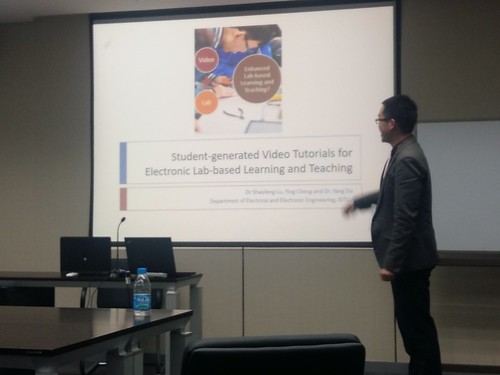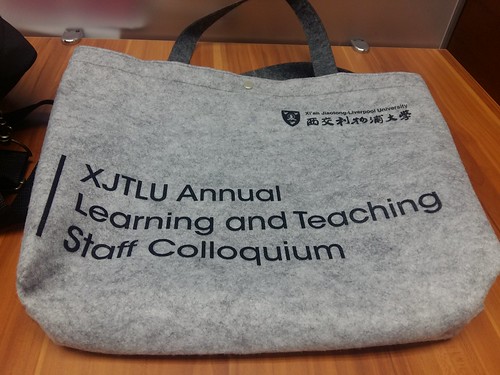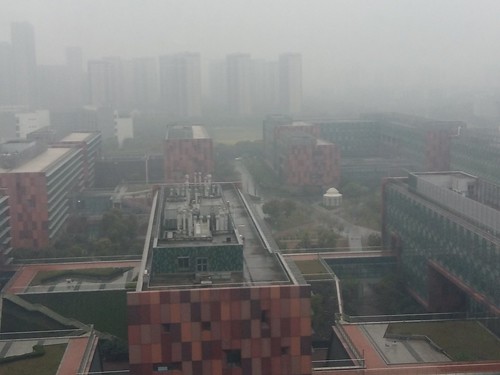When I arrived at the AEC office in the morning, there was already an incredible buzz of activity. Lots of last minute checks underway, packing of delegate bags, and making sure the technology was ready to capture the whole event. Everyone was ushered into a large, brightly lit and well equipped teaching space that was beautifully presented with fresh flowers and branded decorations. The conference was opened by James Wilson who encouraged us all attendees in the opening debates using a textwall like feature of Moodle. The debates were designed to were chaired by Dr Janet Thistlethwaite and positions taken by a range of XJTLU academics on controversial topics like "The future of Higher Education (HE) is online and robots will replace teachers" and "Higher Education is a product rather than a social good". The debates were engaging and lighthearted. A thoughtful way to begin a teaching and learning conference and one that I'd never encountered before. My only slight criticism of the debates were that the panel didn't respond to the many comments supplied on the text wall. This would have been a useful way of opening up the conversation and responding to different aspects of the arguments presented. You can view the recordings of the debates here.
The rest of the afternoon I witnessed a wide variety of teaching and learning topics ranging from gameification of learning to BYOD research.Highlights for me included a joint presentation led by Shaofeng Lu and his student on the effectiveness of student generated video tutorials in electronic lab based teaching. The students (all presenting in English) were very articulate and self aware about the learning they had experienced. They stated that the one of the benefits of creating these video was that it had deepened their own understanding of the subject.
The other standout presentation was from Lixian Qian (international Business School)who shared work and research undertake alongside University of Liverpool colleagues in ULMS. At its hear the project was about exploring the value of co-creation and communication across both universities using a platform that was accessible to both. Currently University of Liverpool students have access to Blackboard while students at XJTLU use Moodle. The Dwelltime platform was selected to support this activity as it was accessible for both student groups of around 300 in total. What was facintating was the lengths that academic staff had to go to, to ensure that communication and collaboration could happen. Overcoming a number of obstacles such as different semester start times, knowledge and time differences, great firewall of china, and other preconceptions about technology. This was before any assessment began! The results of the study indicated that students valued using the tool to see the progress of each of the members of the group, thereby cutting down on freeloading issues. The XJTLU students found this very useful. However, some students, predominately, home students, decided to use other platforms that they were more familiar with such as google docs. The presentation is available here. Finally, it was time for me to present on the work undertaken at University of Liverpool on electronic management of assessment. Unfortunately, it was a packed day and very few academic staff hung around to here it. However, those that did asked insightful questions and we keen to hear about the issues associated with this approach.Especially as they were about to undertake a similar process! The powerpoint and recording is available here.
The heavens opened at the end of the day, so Anna and I caught a taxi to the Dushu Lake Neighborhood centre to try some of the Suzhou's finest noodles. The taxi ride was a little tense as he tried to rip us off by taking us in the opposite direction. A heated exchange happened between him and Anna but we eventually got to our destination. We only paid half the fare as well! These noodles were fantastic and only cost £1.20. Thanks for the tip Nathan!





Comments
Post a Comment